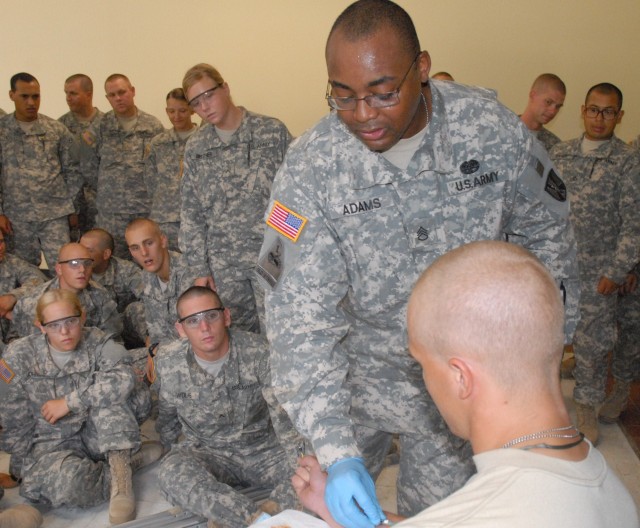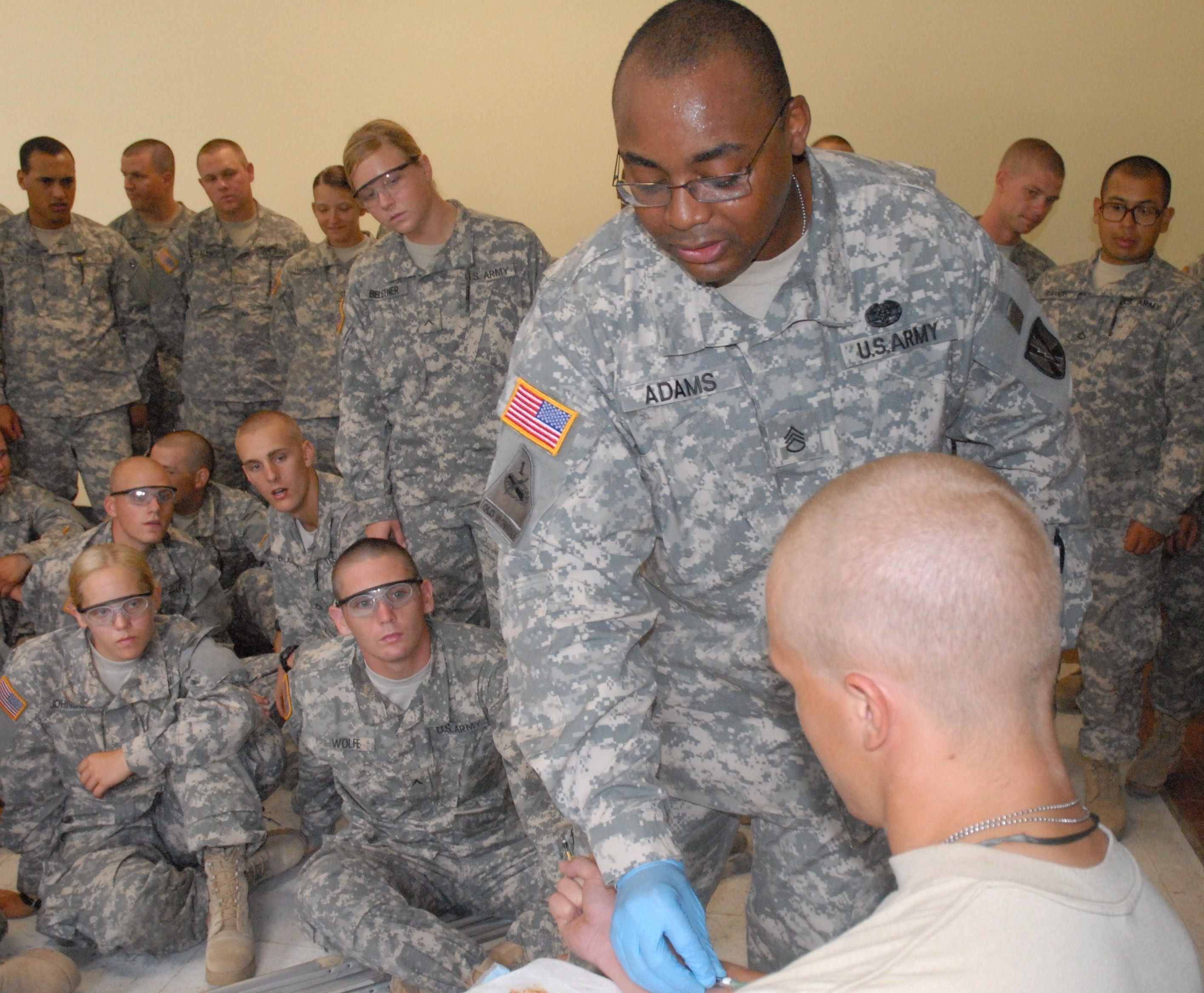FORT JACKSON, S.C. -- The last time Staff Sgt. Corey Adams saw interpreter Mahamed Rashim, the Iraqi was being rushed into surgery after having been shot in the chest during an ambush just south of Baghdad in 2003.
Adams, then a medic with the 1st Armored Division, helped treat Rashim's wounds after the attack. When the medics handed the young Iraq native over to the hospital staff, Adams continued with his mission and thought little about the incident.
At least until a couple of weeks ago.
Adams, currently assigned to the 165th Infantry Brigade, recently was helping teach a Combat Lifesaver Course to Basic Combat Training Soldiers from Company D, 1st Battalion, 61st Infantry Regiment.
Another instructor asked the Soldiers if any of them had ever been shot. One Soldier, a specialist in the 09L program, raised his hand and was asked to share his story. The 09L program refers to the MOS for translators/interpreters, which is for non-native English speakers.
As the Soldier began to share the details of his shooting, Adams said the story sounded familiar and wondered if the Soldier had been the Iraqi interpreter he had helped save six years earlier.
"I asked him if this had happened in Baghdad," Adams said. "He said it did. I asked him if he had been an interpreter. He said he had been."
After a few more questions, Adams realized that the new Soldier standing in front of him was indeed the same interpreter he had last seen being taken into a surgical room at a Baghdad hospital.
"Big world, small Army," Adams said with a laugh as he described his chance reunion with Rashim.
Rashim said he was grateful to finally have a chance to thank one of the Soldiers who helped save his life that day.
"Because of him, I'm alive and able to spend time with my family," Rashim said.
Rashim doesn't remember much about the day in 2003 when he was shot while on patrol with the U.S. Soldiers. Suddenly finding it almost impossible to breathe and covered in blood, Rashim's thoughts were with his family as medics fought to save his life.
"I prayed not to die because I wanted to see my son," he said.
Rashim owned a video game shop that failed in the chaos of the invasion and its aftermath. With no jobs available and a family depending on him, Rashim one day approached a tank crew and offered his services as a translator.
That led to a full-time job translating for Soldiers with the 82nd Airborne. Rashim took to his new job with enthusiasm and found he enjoyed being around the Americans, whom he viewed as liberators.
"I loved riding in Humvees and chilling out with the Soldiers," Rashim said.
On the day that Rashim was shot, American forces were patrolling on the southern outskirts of Baghdad. Rashim was one of several interpreters also on the patrol.
All of a sudden, the sound of gunshots cracked through the air as insurgents launched an ambush.
Adams was called to the ambush site to help treat the wounded.
"There were several who were wounded, and he was one of the most serious," Adams said.
Rashim had a collapsed lung and was bleeding heavily. An AK-47 round had passed through his chest.
Adams and the other medics worked to stabilize Rashim and then transported him to a military hospital in Baghdad, where he underwent surgery. He would spend the next 10 days in the hospital.
After recovering from his wounds, and undeterred by the insurgent attacks, Rashim returned to his job as interpreter. He continued working as an interpreter until he decided to come to America and join the Army.
"I wanted a new life and a future for my wife and son," Rashim said about his decision.
He soon found himself at Fort Jackson, where he will train to be a translator/interpreter after he graduates from BCT. He also plans to become a U.S. citizen.
Rashim said he wants to make the most of the second chance he feels like he received from Adams and the other medics who helped him the day he was shot.
"I thank God every night that I came here."


Social Sharing